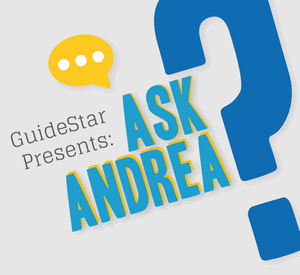<
It’s a funny thing about asking for help.
First, you’ve got to admit to yourself you might need it. Then you’ve got to admit it to someone else. That’s a risky business.
You’ve got to expose yourself and risk that people might laugh at you, or worse yet, disrespect you.
As I’ve gotten older, the fear of looking foolish — the horror that someone might find out that I don’t know what I’m doing — has finally receded somewhat. I’m no longer as plagued by the Imposter Syndrome as I was in my 30s, 40s or 50s.
I’ve gradually become more comfortable with my achievements and am less inclined to think they are the result of pure chance.
At the same time, I’ve become more willing to admit what I don’t know or can’t do, and ask people for help.
The Paradox of Perfection
Having tried for years to be more perfect, it turns out that becoming perfect isn’t a great goal.
In the effort to be perfect, you try to hide the bits of yourself you’re not happy with, masking them with a sleek, impenetrable surface. But in your effort to be seen as perfect, you hold yourself apart and aloof.
The more you try to show a perfect exterior, the more you push people away and the more afraid you are that they might see the bad bits you struggle so hard to hide. And, paradoxically, the bigger those bad bits seem to you.
But when you’re willing to acknowledge all of you — the bad bits along with the good — you become more aligned with yourself. You have less to hide and more to show. You can open yourself up to the power and energy of those around you. You’ll find it easier to ask people for help and you’ll be able to graciously accept the help that’s offered.
When you show up as you are, you open yourself to the community around you. And that’s where the good stuff happens.
Inspiring Stuff on Vulnerability and Asking
If this topic interests you, don’t miss Amanda Palmer’s book, The Art of Asking (or, How I stopped Worrying and Let People Help).
I also recommend just about anything by Brené Brown. If you don’t know Brené’s work, start with her TEDX talk on Vulnerability.
Copyright: scottff72 / 123RF Stock Photo
Ask for Help and Notice Your Feelings
This week, ask someone to help you with something. And as you ask for help, pay close attention to your feelings. It might be something as simple as asking directions. Or, it might be something as complicated as learning a new skill for your job.
How do you feel about admitting that you need help? How do you feel about accepting it? Make a few notes to yourself. Pay attention to your resistance to acknowledging your need for help — I promise you, it’ll be there.
Once you’ve been helped, consider whether you’re better off having exposed yourself. Was it worth it?
Share your thoughts below, or leave a comment on my Facebook page.
